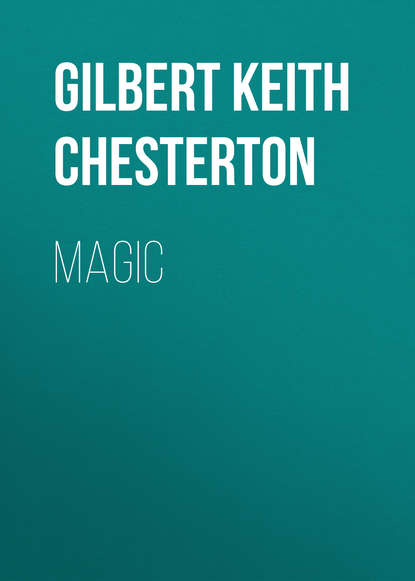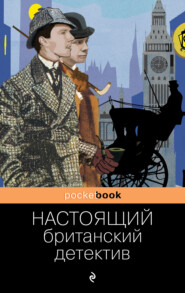По всем вопросам обращайтесь на: info@litportal.ru
(©) 2003-2025.
✖
Magic
Настройки чтения
Размер шрифта
Высота строк
Поля
Smith. You don't drink wine yourself?
Doctor. [Mildly startled.] Drink wine! Well – what else is there to drink?
Smith. So drinking decently is a conjuring trick that you can do, anyhow?
Doctor. [Still good-humouredly.] Well, well, let us hope so. Talking about conjuring tricks, there is to be conjuring and all kinds of things here this afternoon.
Smith. Conjuring? Indeed? Why is that?
Enter Hastings with a letter in each hand
Hastings. His Grace will be with you presently. He asked me to deal with the business matter first of all.
[He gives a note to each of them.
Smith. [Turning eagerly to the Doctor.] But this is rather splendid. The Duke's given £50 to the new public-house.
Hastings. The Duke is very liberal.
[Collects papers.
Doctor. [Examining his cheque.] Very. But this is rather curious. He has also given £50 to the league for opposing the new public-house.
Hastings. The Duke is very liberal-minded.
[Exit.
Smith. [Staring at his cheque.] Liberal-minded!.. Absent-minded, I should call it.
Doctor. [Sitting down and lighting a cigar.] Well, yes. The Duke does suffer a little from absence [puts his cigar in his mouth and pulls during the pause] of mind. He is all for compromise. Don't you know the kind of man who, when you talk to him about the five best breeds of dog, always ends up by buying a mongrel? The Duke is the kindest of men, and always trying to please everybody. He generally finishes by pleasing nobody.
Smith. Yes; I think I know the sort of thing.
Doctor. Take this conjuring, for instance. You know the Duke has two wards who are to live with him now?
Smith. Yes. I heard something about a nephew and niece from Ireland.
Doctor. The niece came from Ireland some months ago, but the nephew comes back from America to-night. [He gets up abruptly and walks about the room.] I think I will tell you all about it. In spite of your precious public-house you seem to me to be a sane man. And I fancy I shall want all the sane men I can get to-night.
Smith. [Rising also.] I am at your service. Do you know, I rather guessed you did not come here only to protest against my precious public-house.
Doctor. [Striding about in subdued excitement.] Well, you guessed right. I was family physician to the Duke's brother in Ireland. I knew the family pretty well.
Smith. [Quietly.] I suppose you mean you knew something odd about the family?
Doctor. Well, they saw fairies and things of that sort.
Smith. And I suppose, to the medical mind, seeing fairies means much the same as seeing snakes?
Doctor. [With a sour smile.] Well, they saw them in Ireland. I suppose it's quite correct to see fairies in Ireland. It's like gambling at Monte Carlo. It's quite respectable. But I do draw the line at their seeing fairies in England. I do object to their bringing their ghosts and goblins and witches into the poor Duke's own back garden and within a yard of my own red lamp. It shows a lack of tact.
Smith. But I do understand that the Duke's nephew and niece see witches and fairies between here and your lamp.
[He walks to the garden window and looks out.
Doctor. Well, the nephew has been in America. It stands to reason you can't see fairies in America. But there is this sort of superstition in the family, and I am not easy in my mind about the girl.
Smith. Why, what does she do?
Doctor. Oh, she wanders about the park and the woods in the evenings. Damp evenings for choice. She calls it the Celtic twilight. I've no use for the Celtic twilight myself. It has a tendency to get on the chest. But what is worse, she is always talking about meeting somebody, some elf or wizard or something. I don't like it at all.
Smith. Have you told the Duke?
Doctor. [With a grim smile.] Oh, yes, I told the Duke. The result was the conjurer.
Smith. [With amazement.] The conjurer?
Doctor. [Puts down his cigar in the ash-tray.] The Duke is indescribable. He will be here presently, and you shall judge for yourself. Put two or three facts or ideas before him, and the thing he makes out of them is always something that seems to have nothing to do with it. Tell any other human being about a girl dreaming of the fairies and her practical brother from America, and he would settle it in some obvious way and satisfy some one: send her to America or let her have her fairies in Ireland. Now the Duke thinks a conjurer would just meet the case. I suppose he vaguely thinks it would brighten things up, and somehow satisfy the believers' interest in supernatural things and the unbelievers' interest in smart things. As a matter of fact the unbeliever thinks the conjurer's a fraud, and the believer thinks he's a fraud, too. The conjurer satisfies nobody. That is why he satisfies the Duke.
[Enter the Duke, with Hastings, carrying papers. The Duke is a healthy, hearty man in tweeds, with a rather wandering eye. In the present state of the peerage it is necessary to explain that the Duke, though an ass, is a gentleman.
Duke. Good-morning, Mr. Smith. So sorry to have kept you waiting, but we're rather in a rush to-day. [Turns to Hastings, who has gone over to a table with the papers.] You know Mr. Carleon is coming this afternoon?
Hastings. Yes, your Grace. His train will be in by now. I have sent the trap.
Duke. Thank you. [Turning to the other two.] My nephew, Dr. Grimthorpe, Morris, you know, Miss Carleon's brother from America. I hear he's been doing great things out there. Petrol, or something. Must move with the times, eh?
Doctor. I'm afraid Mr. Smith doesn't always agree with moving with the times.
Duke. Oh, come, come! Progress, you know, progress! Of course I know how busy you are; you mustn't overwork yourself, you know. Hastings was telling me you laughed over those subscriptions of mine. Well, well, I believe in looking at both sides of a question, you know. Aspects, as old Buffle called them. Aspects. [With an all-embracing gesture of the arm.] You represent the tendency to drink in moderation, and you do good in your way. The Doctor represents the tendency not to drink at all; and he does good in his way. We can't be Ancient Britons, you know.
[A prolonged and puzzled silence, such as always follows the more abrupt of the Duke's associations or disassociations of thought.
Smith. [At last, faintly.] Ancient Britons…
Doctor. [To Smith in a low voice.] Don't bother. It's only his broad-mindedness.
Duke. [With unabated cheerfulness.] I saw the place you're putting up for it, Mr. Smith. Very good work. Very good work, indeed. Art for the people, eh? I particularly liked that woodwork over the west door – I'm glad to see you're using the new sort of graining … why, it all reminds one of the French Revolution.
[Another silence. As the Duke lounges alertly about the room, Smith speaks to the Doctor in an undertone.
Smith. Does it remind you of the French Revolution?
Doctor. As much as of anything else. His Grace never reminds me of anything.
[A young and very high American voice is heard calling in the garden. "Say, could somebody see to one of these trunks?"
[Mr. Hastings goes out into the garden. He returns with Morris Carleon, a very young man: hardly more than a boy, but with very grown-up American dress and manners. He is dark, smallish, and active; and the racial type under his Americanism is Irish.

















